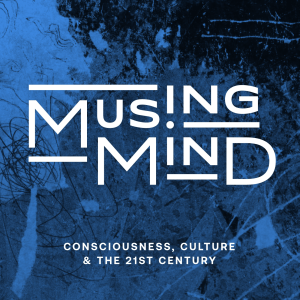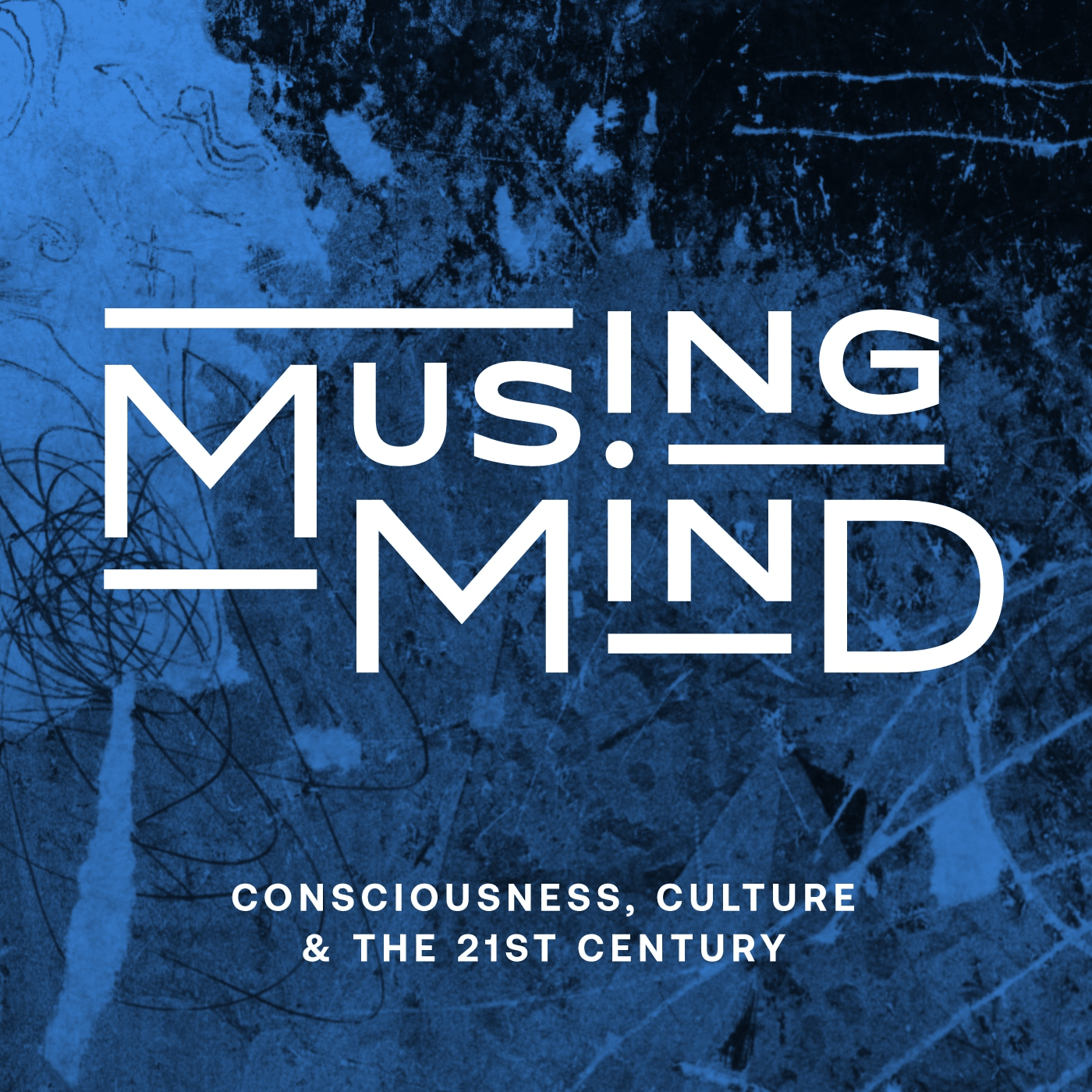Episodes

Sunday Dec 06, 2020
Capitalism & the Self: Barnaby Raine
Sunday Dec 06, 2020
Sunday Dec 06, 2020
In this conversation, intellectual historian Barnaby Raine joins me in a wide-ranging, encyclopedic, and wonderful conversation about capitalism and the self.
Barnaby is working on his PhD at Colombia, where he studies the end of capitalism in social & political thought since Marx, with a focus on ‘the problem of transition’: the challenge of seeking to move beyond a system upon which our lives still depend.
Barnaby is also a teacher at the Brooklyn Institute for Social Research, where he taught a course on “Capitalism and the Self”, which I took and loved, the content of which is the topic of our conversation today.
Our basic question is this: how has capitalism, throughout its history, produced not only goods and services, but our subjective experience, our sense of what the self is and how we relate to other people?
Barnaby walks us through the intellectual history of this question, from Rousseau, to Dukheim, Lukács, Adorno, Horkheimer, Marcuse, Foucault, and finally, into the present.
This is a long (3 hrs) conversation. It’s wonderful in its entirety, but if you’d prefer to jump to specific topics, there is a detailed time map below that can point you to specific segments.
Enjoy!

Saturday Oct 10, 2020
Katherine Gibson: Self-Transformation for Post-Capitalism
Saturday Oct 10, 2020
Saturday Oct 10, 2020
My guest on this episode is Katherine Gibson, a fiercely creative thinker on the relationship between post-capitalism and consciousness. With Julie Graham, she is co-author of a number of books, including The End of Capitalism as We Know It, and Postcapitalist Politics.
Katherine is an economic geographer at Western Sydney University, and founded the ‘Community Economies Collective’, which is a project that involves both academics and communities in theorizing and practicing new economic visions.
In our conversation, we explore:
-
The relationship between self-transformation and economic transformation
-
How post-capitalism is not something that can be learned or intellectually understood, so much as performed, acted out, and felt, which suggests why new economies require new selves, new configurations of how we experience our bodies and relations
-
How national scale policy like basic income can help support individuals in their own processes of exploration and transformation,
-
Why self-entrepreneurship is the ultimate expression of neoliberal subjectivity,
-
Etc.
Enjoy!

Saturday Sep 12, 2020
Julie Nelson: What If Capitalism Isn't the Problem?
Saturday Sep 12, 2020
Saturday Sep 12, 2020
My guest today is Julie Nelson: economist, and zen teacher. She co-edited a book in 1993 that became known to many as an early manifesto for feminist economics, and has spent her career questioning assumptions - of both the human mind and the discipline of economics.
She is an economics professor (emeritus) at the University of Massachusetts, Boston, a senior research fellow at the Global Development and Environment Institute at Tufts, and a senior assistant teacher at the Greater Boston Zen Center. She is author of the book Economics for Humans, co-editor of Beyond Economic Man: Feminist Theory and Economics, and a number of others.
A polarizing question lingers as the theme for our conversation: what if capitalism isn’t the problem? Julie suggests that many of the ills - greed, environmental degradation, extreme inequality - so many on the left are quick to blame capitalism for have little to do with capitalism. Rather, she targets ‘economism’ - a particular set of economic theories and assumptions, plus a layer of incentives we’ve built atop them. Neither updating our theories to better match reality, nor redesigning the incentive structures that underlie economic outcomes require an exit from capitalism.
Viewing capitalism as a rigid and dogmatic system that inherently produces certain outcomes, Julie suggests, are “short-cuts to thinking” that keep us from seeing the agency we already have to change the system.
A few other topics we explore:
-
Imaginative rationality.
-
The ‘emptiness’, or ‘no-nature’ of markets.
-
Are consciousness and materialism compatible?
-
Can waged work be intrinsically motivated?
-
How can we change our capitalist system from with?
Enjoy!

Wednesday Jul 22, 2020
Ben Hunnicutt: Leisure, the (Forgotten) Basis of American Progress
Wednesday Jul 22, 2020
Wednesday Jul 22, 2020
My guest today is the historian and professor of leisure studies at the University of Iowa, Ben Hunnicutt.
His scholarship focuses on a simple, perplexing question: why, after 100 years of shortening working weeks, did America abandon the pursuit of leisure?
I feverishly read two of his books - Work Without End, and Free Time: The Forgotten American Dream - that chronicle the history of the relationship between America’s political economy and the pursuit of leisure time for all.
He brings the precision of a historian together with the sensibility of a poet (nowhere more visible than his deep study of Walt Whitman) to make sense of a fascinating time period during which America changed its mind.
In our conversation, we cover:
-
The history of the ideas of shorter working weeks and leisure time from 1830 until today.
-
The difference between “economic progress” and “higher progress”.
-
How children who spend more time at play grow into adults better suited to handle leisure time
-
The psychologies of labor and leisure
-
Strategies to reintroduce leisure into the U.S. political economy.
Enjoy!

Tuesday Jun 16, 2020
Michael Brooks: Politics and Consciousness
Tuesday Jun 16, 2020
Tuesday Jun 16, 2020
My guest today is Michael Brooks: host of The Michael Brooks Show and author of Against the Web. On top of having one of the most popular Leftist political talk shows (full of wonderfully deep political analysis), Michael has a rich background in meditation, integral philosophy, and the general consciousness scene.
He regularly speaks about the need to situate the Leftist political project within a broader spiritual context, placing questions of consciousness at the center. In our conversation, we discuss:
-
The (lacking) relationship between ‘consciousness culture’ and politics
-
The politics of free time
-
How to bridge local anti-fragility with deep global interdependence and national social democracies
-
Comparing basic income and a federal jobs guarantee
Enjoy!
Find full show notes, subjects, and links on the episode page: www.musingmind.org/podcast/michael-brooks

Sunday Apr 05, 2020
Gustav Peebles: Reclaiming Adam Smith & Splenetic Philosophy
Sunday Apr 05, 2020
Sunday Apr 05, 2020
My guest today is Gustav Peebles: professor of economic anthropology at The New School, and author of an explosive essay that turns Adam Smith on his head.
In our conversation, we explore:
-
The forgotten “splenetic” philosophy of Adam Smith, and how his Theory of Moral Sentiments challenges the popular notion of his economic vision
-
How the conflation of wealth with wisdom is bad for individuals, but great for society
-
How Adam Smith and Karl Marx agreed on false consciousness, but disagreed on what to do about it
-
Social dividends, public goods, UBI, and pencils as a great example of communism
Hope you enjoy!

Tuesday Mar 10, 2020
Glen Weyl: The Myth of Individualism, Radical Markets, New Societies
Tuesday Mar 10, 2020
Tuesday Mar 10, 2020
My guest today is Glen Weyl: co-author of Radical Markets, founder of the RadicalxChange movement, Ph.D. in economics from Princeton, and in his spare time, works as Microsoft’s Chief Technology Political Economist and Social Technologist (OCTOPEST).
In our conversation, we explore:
-
How social technologies and economic institutions shape our physical, mental, and social lives
-
The myth of individualism
-
How does RadicalxChange compare & contrast with Piketty’s progressive taxation approach?
-
How to design markets beyond neoliberalism, as mechanisms for complexity
-
UBI, the role of art and artists in creating movements, and a lot more.

Thursday Feb 27, 2020
Peter Frase: Futures of Democratic Socialism & Free Time
Thursday Feb 27, 2020
Thursday Feb 27, 2020
My conversation today is with Peter Frase, author of Four Futures: Life After Capitalism, and member of Jacobin Magazine’s editorial board.
Peter is among the most cogent writers on complex socioeconomic topics I’ve encountered. He dropped out of a sociology PhD program & began writing for a more popular, inclusive audience both through his personal website, and as a frequent contributor for Jacobin Magazine, a leading voice in radical left politics.
We spoke about:
-
The past, present, and future of democratic socialism
-
How economic frameworks create the conditions with human development
-
The technocracy of John Maynard Keynes
-
Universal Basic Income
-
The social contract of a post-work society. What does “post-work” actually mean?
-
What is leisure time for? What kinds of humans do we wish to become?
-
Thomas Piketty and the new proposals for progressive taxation
-
Peter’s selection of reading for the foundations & futures of democratic socialism

Wednesday Feb 12, 2020
Alex Williams: Where Did The Future Go? Power in Complex Economies
Wednesday Feb 12, 2020
Wednesday Feb 12, 2020

Thursday Jan 30, 2020
John Vervaeke: The Cognitive Science of Capitalist Realism
Thursday Jan 30, 2020
Thursday Jan 30, 2020
In this conversation, John Vervaeke & I discuss:
-
The meaning crisis as a crisis of interiority
-
The religion that is not a religion
-
Socioeconomic policies as forms of psycho-technologies
-
The cognitive science of capitalist realism
-
The tension between wisdom and commodification
John is a professor of cognitive psychology & science at the University of Toronto. He recently completed a 50-episode lecture series on Youtube: Awakening From the Meaning Crisis.
The series is a wonderful integration of cognitive science and ‘spirituality’, for lack of a better term. He develops a framework for understanding what wisdom is, how to cultivate it, how central the cultivation of wisdom was to societies in the past, and how the usurpation of wisdom by knowledge leaves us adrift in a meaningless cosmos, full of sound and fury, signifying nothing.
One way of thinking about the meaning crisis is as a crisis of wisdom cultivation. The monasteries are gone, the commodification of schools is diluting what passes as ‘education’ to mere preparation for uncertain labor markets; where else do we go for wisdom?

